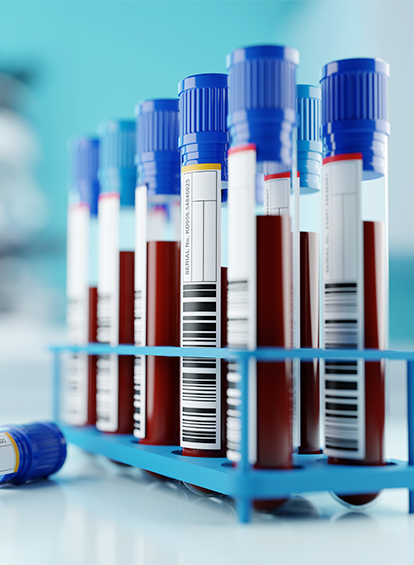Adult Psychiatry
Problematic Alcohol and Drug Use
Problematic alcohol and drug use refers to patterns of substance consumption that negatively impact a person’s physical health, mental wellbeing, and daily functioning. This may range from hazardous or binge use to more entrenched patterns of dependence. Even when it does not meet the formal criteria for a substance use disorder, such use can still carry serious consequences for relationships, employment, and overall quality of life.

What is it?
Problematic substance use is more than occasional overindulgence. It often involves recurring behaviours that continue despite clear evidence of harm. Individuals may feel a lack of control over their use, find it difficult to stop, or rely on substances to manage emotions or daily stress. Over time, this pattern can lead to social, legal, and financial difficulties, as well as significant health risks.
The condition may develop gradually and often coexists with underlying psychological issues such as anxiety, depression, trauma, or other mental health concerns. Recognising and addressing the root causes of substance use is an essential part of effective treatment and long-term recovery.
Book an appointment
Additional Information

Key Features of Problematic Substance Use
Problematic use is often marked by a loss of control over the quantity or frequency of alcohol or drug consumption. There may be compulsive urges or cravings to use, and individuals often continue to use substances despite harm to their health or relationships. Tolerance may develop, requiring more of the substance to feel the same effect, and withdrawal symptoms can occur when trying to reduce or stop. These behaviours are persistent and tend to interfere with normal functioning.
Common Signs to Look Out For
Some of the more visible signs of problematic substance use include an increasing frequency or amount of consumption, neglecting responsibilities at work or home, and losing interest in hobbies or social interactions. Risk-taking behaviours, such as driving under the influence or unsafe sexual activity, may emerge. Emotional changes such as irritability, anxiety, or depressive episodes are common, as are physical symptoms like sleep problems, appetite changes, or unexplained illnesses.
Causes and Contributing Factors
A variety of factors can contribute to the development of problematic alcohol or drug use. Genetic predisposition plays a role, especially when there is a family history of addiction. Psychological influences—such as co-occurring mental health conditions or unresolved trauma—are also important. Environmental and social influences, including exposure to substance use in early life, peer pressure, or high-stress settings, can increase vulnerability. Societal norms and cultural attitudes around drinking and drug use may further shape behaviour.
When to Seek Help
It’s important to seek help when attempts to cut down or stop use have failed, or when substance use begins to interfere with relationships, work, or physical health. Indicators of dependency, such as needing a substance to get through the day or experiencing withdrawal symptoms, should not be ignored. Using substances to cope with emotional distress or trauma is also a sign that support is needed. Early intervention can prevent more severe complications and improve long-term outcomes.
Treatment Approaches
Effective treatment for problematic substance use should be tailored to the individual’s specific needs. Psychological therapies, including Cognitive Behavioural Therapy (CBT) and motivational interviewing, help explore the underlying causes of use and develop healthier coping mechanisms. Medical support may be required to manage withdrawal symptoms or reduce cravings. Lifestyle changes, such as building routines, reducing stress, and increasing support systems, play a vital role. Peer-based support groups also offer connection and accountability throughout the recovery process.
How We Can Help
At The Clinica, Dr. Arora provides diagnostic assessments and personalised treatment plans for adults experiencing problematic substance use. Our approach addresses both the behaviour and the underlying emotional factors, helping individuals regain control and develop practical strategies for change. Please note, we are an outpatient facility and best placed to support those who do not require inpatient detoxification.
In addition to one-to-one care, we offer education and support for families, schools, and organisations looking to understand and manage the impact of substance use. If you're ready to take the first step, please contact our Booking Team at 01344 946363 or email info@theclinica.co.uk for a confidential consultation.
Frequently Asked Questions
No. You don’t need to meet the criteria for addiction to benefit from support. Problematic patterns of use can still have serious effects and should be addressed early.
Yes. Many individuals benefit from psychological therapy alone, particularly when substance use is tied to stress, anxiety, or trauma. Medication is sometimes used in conjunction for more complex needs.
Relapse is a common part of the recovery process. It does not mean failure, but rather that further support or a new approach may be needed. We tailor treatment plans to your personal journey.
Not necessarily. Many people conceal their substance use, particularly when it hasn’t yet caused outwardly visible problems. However, the internal impact can still be significant.
Absolutely. All consultations and treatment are confidential, and your privacy is fully respected throughout the process.
Specialised Clinics
General Enquiries
Please send your enquiry to us and our Practice Manager will be in touch shortly. Alternatively, if you would rather speak to us or your enquiry requires our urgent attention, please call us on 01344 946363.







